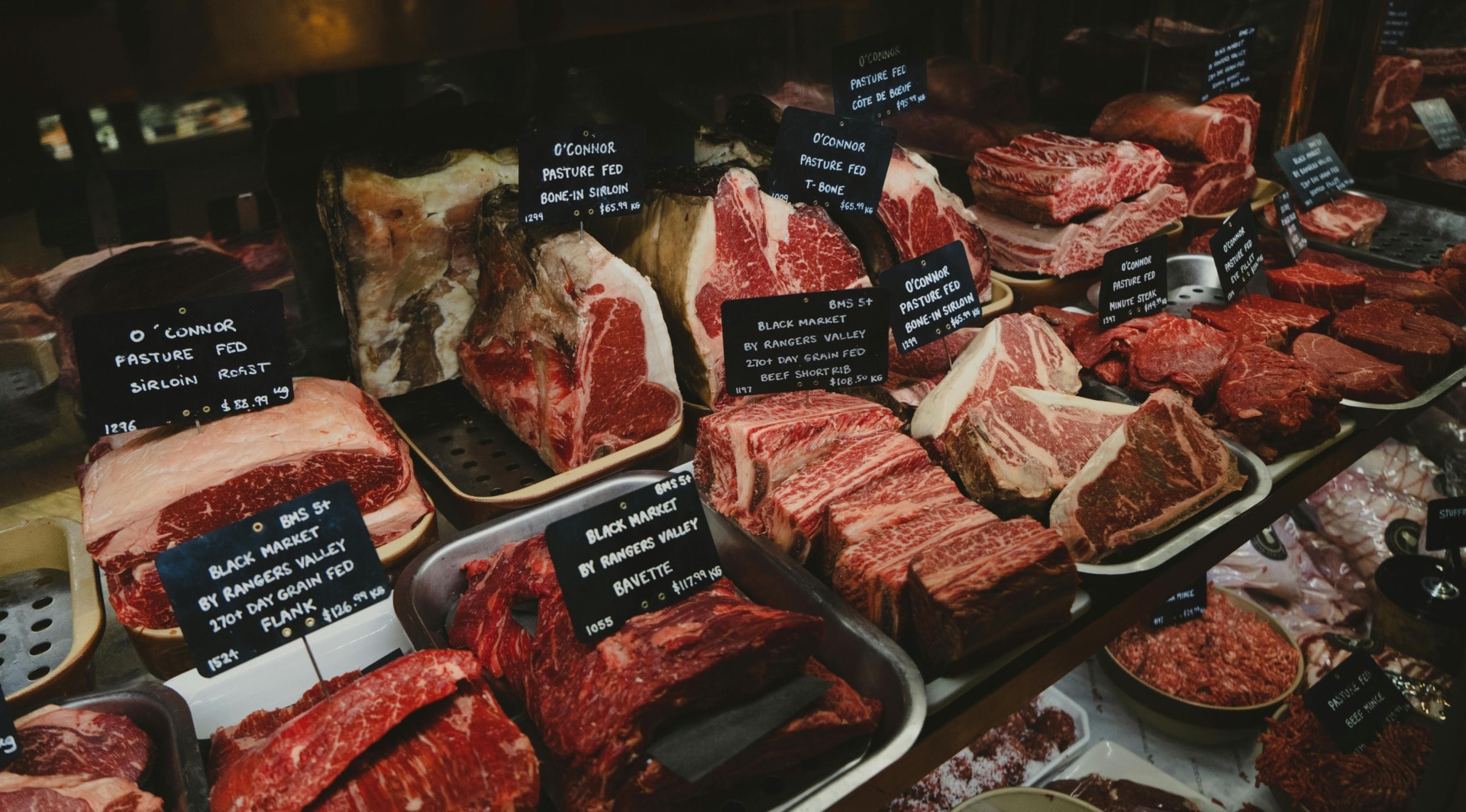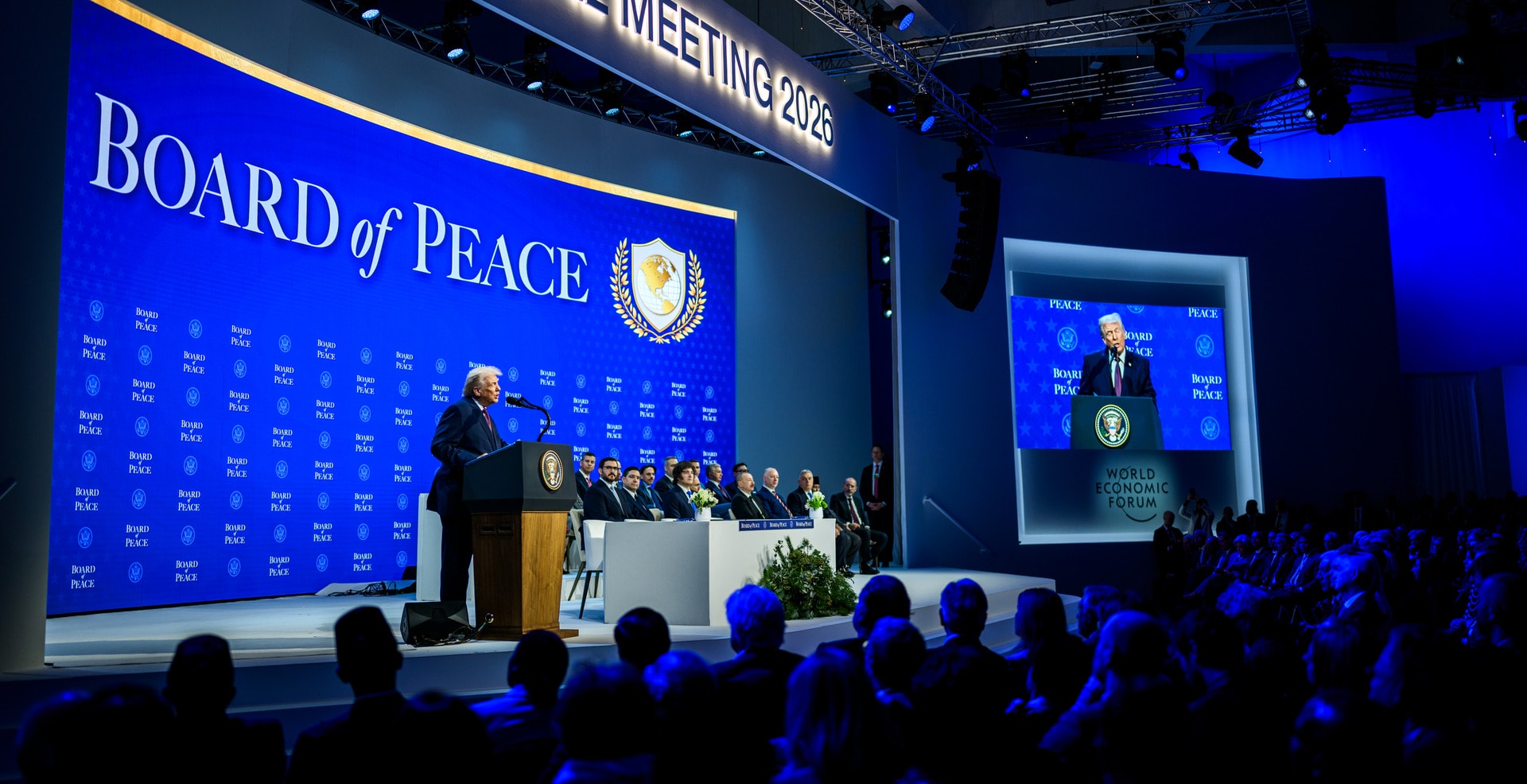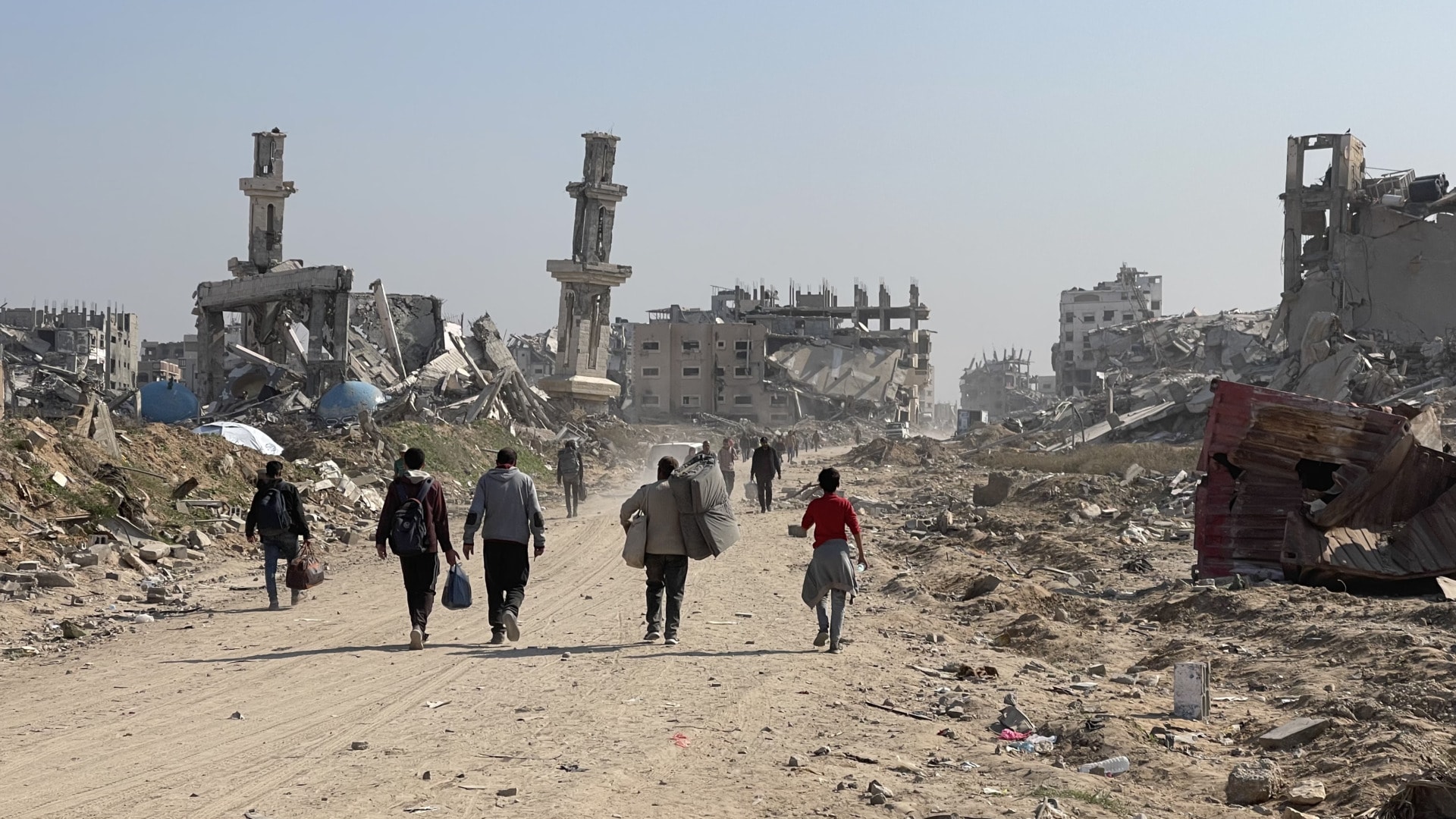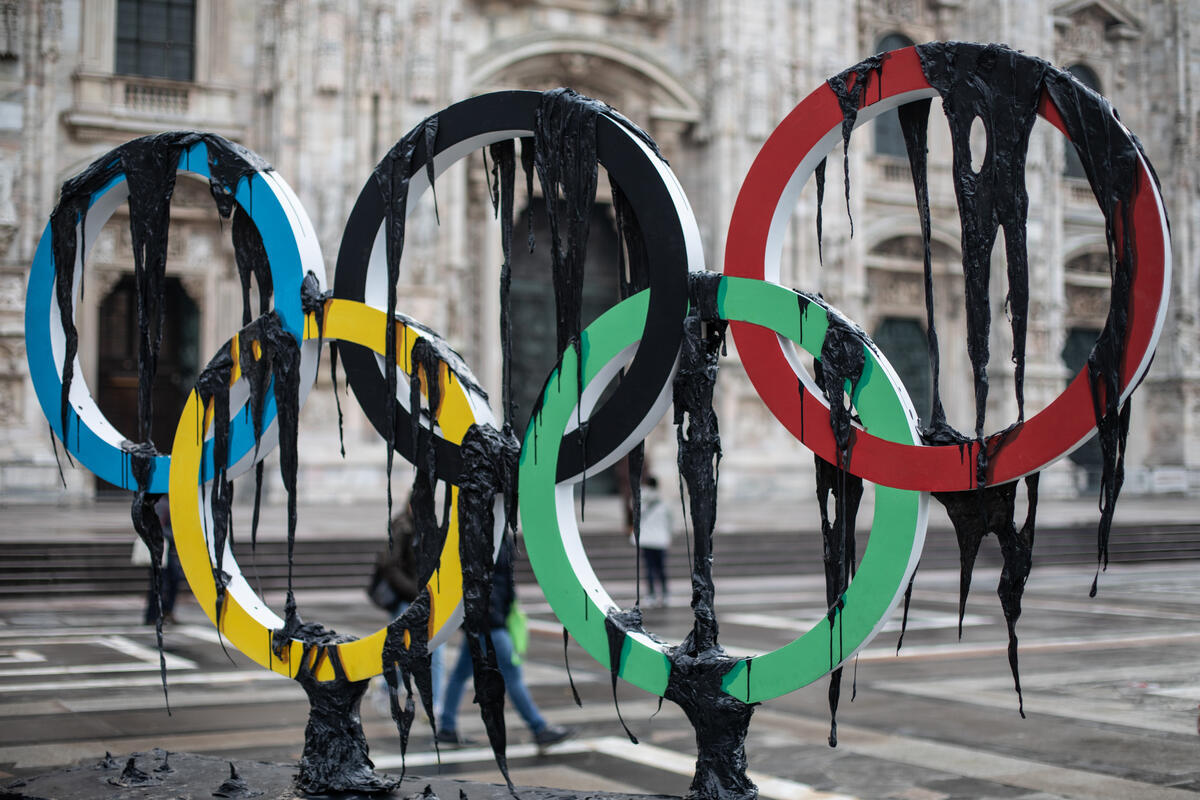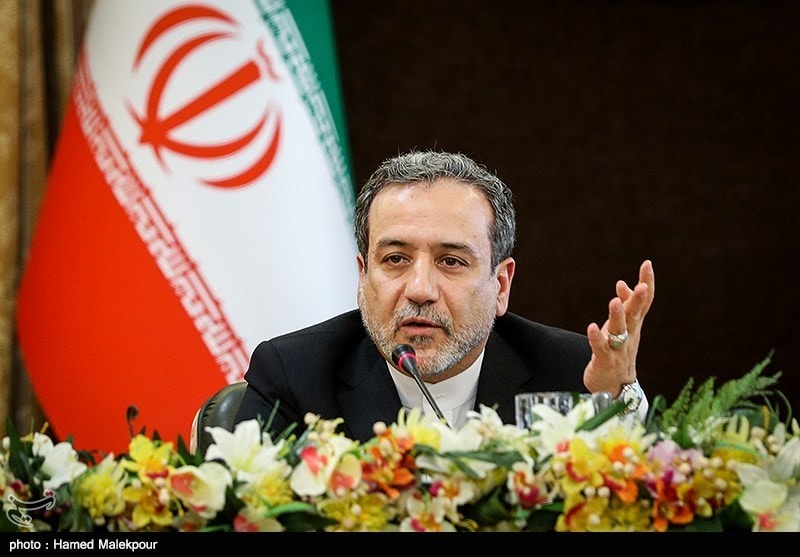Globalization is no longer limited to questions of economic, financial, and trade policy but has become an existential issue affecting all areas of social and political life. New global threats like international terrorism, the financial and refugee crises, climate change, and pandemics such as the coronavirus demonstrate that standard economic responses, especially neoliberal ones, which privatize benefits while socializing costs, have failed. As a result, globalization as we know it is giving way to new globalism, where competition replaces cooperation.
As is currently evident, health systems are ill-equipped to respond adequately to the Covid-19 crisis because of a lack of preparation, foreign supply chains, and a failure of leadership. Not only in developing countries but also in the US, the Covid-19 mortality rate among the poor, in the US especially Hispanics and African Americans, is significantly higher than for other groups. The lack of a safety net, disparities in health outcomes between the rich and poor, illustrate the weakness of the US-style capitalism in dealing with such a global crisis. This global pandemic has made clear the need for economic strategies that offer sustainable models of growth and a fair distribution of resources to reduce the gap between rich and poor countries.
Today’s global existential crises differ in kind and not only in degree from previous models of globalism established after the Second World War to promote liberal democratic political, social, and economic order. This essay attempts to show how we got to where we are today.
Studies show citizens no longer feel they have a voice in effecting the process of democratic decision-making.[1] This crisis of confidence in the ability to effect democratic change comes at a time in which existing global threats cannot be solved by traditional means. While the international community was able to address the global financial crisis through political cooperation and existing mechanisms of financial intervention and supervision, the new global challenges such as climate change, forest fires, rising sea levels, and the coronavirus pandemic pose existential threats that cannot be overcome by applying end-means rationality or existing technologies alone.
As a result of climate change, flood disasters, fires, and pestilences have become biblical in proportion and are more reminiscent of problems faced in the Middle Ages rather than the modern globalized world.
Technological advances provide some relief but even rich countries are powerless in the face of the unrestrained exploitation and destruction of natural resources and ecosystems. A global pandemic like the Covid-19 one not only poses a threat to human life in many developing and emerging countries but also in the rich industrial nations due to lack of access to health care systems.
For countries lacking an adequate social safety net and the luxury of social distancing such as India, Bangladesh, Myanmar or the countries of the African subcontinent, the human and economic consequences of such a global pandemic are expected to be devastating.
As a result of new existential global risks, the world today is more dependent than ever on international cooperation.
Globalization means that national, social, and political life is subject to external influences not entirely under the hegemony of any nation, group of nations, or regional power(s).[2]
For a long time, globalization was considered a matter of ensuring free markets and promoting global trade in accord with international principles such as those expounded by the WTO. Today, globalism must be understood in a much more comprehensive manner.
Technology, especially the Internet and social media, have created a decentralized global communication network that operates largely outside of state control. At the beginning of the Internet era, this “democratization” of global communication fuelled utopian dreams about using this medium to usher in a new era of liberalism and democracy. The belief that digital technology could be harnessed for liberal, democratic ends was strengthened during the ‘Arab Spring’ which showed how the power of globalized communications technologies could be used to mobilize popular democratic forces to overthrow authoritarian regimes.
Without the Internet and social media, the global visibility of movements such as Occupy in 2011 or the 2019 protests in Hong Kong would have been unthinkable.[3]
But the Internet and social media also magnify the voices of minority or extremist groups. In order to effect change, one does not need a majority of the electorate, but only a fraction of the population, a “base” of dedicated followers. The values these groups represent vary greatly, from progressive environmental movements like “Fridays for Future” to terrorist groups such as ISIS.

Influencers on social media are not limited to national boundaries. More nefarious groups like the Russian hackers in the US 2016 presidential election (but also during the Brexit campaign or European elections) can use the Internet and social media to disguise their identities and exert political influence across national and international boundaries. As a result, the line between domestic and foreign policy is increasingly blurred. [4]
In comparison to social media, the long, slow progress of political coalition building and diplomacy required to address global problems cannot be captured in a Tweet. The gap between political reality and virtual reality has weakened the public’s faith in the credibility and effectiveness of state institutions and strengthened the forces of populism.
Statecraft requires the cooperation of nation-states with competing and diverging interests and values. This cooperation among states with the community of nations is required if they want to effectively shape their own national policies. A major task for the modern state is to integrate national interests into a framework of regional and international structures in order to implement its political goals, such as security issues, environmental protection or free trade agreements. These efforts can be quickly undermined or supported by small but vocal groups who are able to effectively use social media to gain a forum for their ideas.
Few states have the reserve on political and economic capital to squander like the United States has had under the Trump administration with its nationalistic “America First” agenda. The United States is politically, economically, and militarily powerful enough to throw its weight around on the international stage, a luxury that economically weaker countries cannot afford.
In addition, the United States is able to use its power to influence non-state actors. A particularly striking example is the continuing influence of the United States in shaping the policies of the IMF, the World Bank, and the WTO. These institutions exert great influence on the national policy decisions regarding the trade and finance of many poorer countries.[5] To date, developing countries have had little influence on these organizations.
By contrast, in many developing countries, international institutions like the World Bank or the IMF have an enormous influence on domestic finance and trade policies. In many countries, these policies have contributed to even greater poverty and shaken the trust in international organizations and democratic processes.[6]
Today, virtually no country can escape the influence of international governmental and non-governmental organizations on its state sovereignty in its domestic regulations. The influence of non-state and private actors on sovereign national states has greatly increased as a result of globalization.
The changing world order
International terrorism and other global crises have shaken the foundations of the world order established after the Second World War. After the attacks on the Twin Towers on September 11, 2001, the American government under George W. Bush Jr. was faced with the question of how to respond to the threat of global terrorism. The Bush administration responded to this new global threat by declaring a “global war on terror”.
Initially, allies rallied around the United States after this horrific attack. But the US quickly squandered this goodwill by forming a counter-terrorism regime that went far beyond the limits of the existing international action and largely ignored International Human Rights Law. The Second Iraq War was not a war of US self-defense according to Article 51 of the UN Charter.[7]
Not having a clearly defined “enemy” in the war against Islamic terrorism this noble cause quickly became a means for hawks within the US political scene to use this as a pretext for asserting US military power to protect its geopolitical and military interests in the Middle East. This was done without tackling the fundamental problem of despotic rule in the region, which combined with religious fundamentalism and poverty, creating a breeding ground for terrorism.
Because the US did not want to jeopardize its oil interests by confronting the Saudis about the fact that the majority of terrorists involved in 9/11 were connected to Bin Laden, it perversely laid the blame for the attacks on the regime of Saddam Hussein, based on claims that Iraq was involved in producing “weapons of mass destruction”, claims that turned out to be groundless.
The US invasion of Iraq produced a short-term victory but contributed to destabilizing the region, which allowed for the emergence of new terrorist movements.
The US involvement in Afghanistan, which harkened back to Cold War attempts to roll back Soviet influence, has led to a protracted involvement in the country with no end in sight. Instead of considering how to approach the new global challenge of international terrorism, the United States attempted to address the challenge through military might and the sting of financial sanctions set out in the USA Patriot Act.
These actions undermined international institutions and the post-war order created after the Second World War, which were created not only to ensure lasting peace, but also to promote a liberal international economic order to ensure fair and free trade for all.
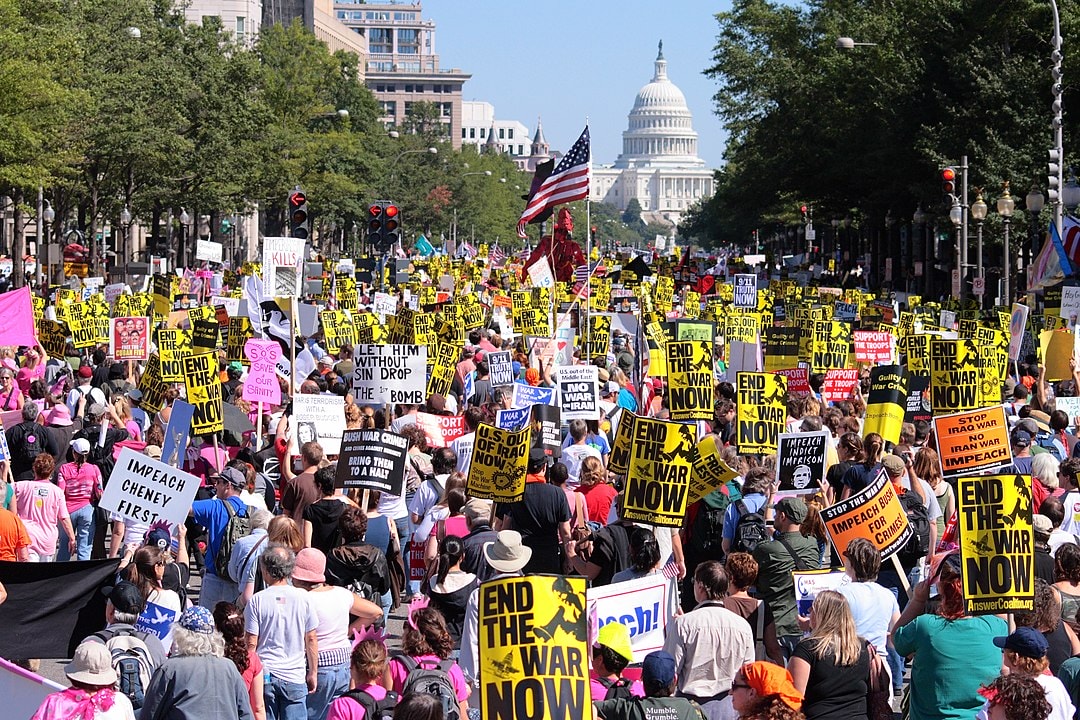
The Second Iraq War changed the global perception of the United States and the Western world.
The evident breach of international law challenged the legitimacy of the leadership of the United States as a nation committed to liberal and democratic values. The lack of a UN mandate in the Second Iraq War ushered in a new turn in US foreign policy that saw the progressive erosion of commitment to international agreements and human rights that continues to this day.[8]
Instead of developing a new strategy for dealing with international terrorism, the United States reverted to its strategy during the Cold War, using military strength to advance geopolitical and economic interests. It did not try to galvanize international support for a new global security challenge in a post-Cold War environment no longer open to these Cold War tactics and strategies.
Paradoxically, the destabilization of the Middle East through the US attempt to advance its geopolitical and energy security interests by military means has led many countries to turn to Russia and China for orientation.
Russia saw the failure of the United States to pacify Iraq, Libya and Syria as a chance to reassert itself as a regional power in the Middle East, particularly in Syria and Iran.
These changes in Russia and China’s military and geopolitical power were not limited to foreign policy. The so-called BRIC trading bloc (Brazil, Russia, India, China and later South Africa) quickly became an influential economic counterweight to the United States and Europe in world trade. One of the main reasons the 2014 European sanctions against Russia after the annexation of Crimea have been so ineffective to date is the new economic and financial weight of the BRICS countries.
The European foreign policy and its role on the international stage have suffered tremendously as a result of the erratic character of the Trump administration and the resulting unstable partnership between the European Union and the United States.
The 2015 refugee crisis exposed the weakness of European resolve to act in concert and strengthened the hand of European skeptics. Member States such as Poland, Hungary, and the Czech Republic, which joined the Union as part of its eastern expansion, have profited from the European common market but refused to share in the burden of accepting refugees.
The rise of populism and resurgence of nationalism in Europe and across the world has emboldened authoritarian leadership in these countries and created the conditions leading to Brexit. The refusal of these European Member States to fulfill their legal obligations under EU law have plunged the EU into a deep crisis. To date, the EU has been unable to fill the power vacuum created by the US’ lack of leadership.
A history of globalization
The history of modern globalization originates in the period between 1850 and 1914 when communication technologies such as the telegraph linked markets worldwide. As a result, uniform raw material prices and exchange rates were created. This marks the origin of the global financial market along with the global flow of goods and services.
The opening of markets contributed to immense labor migration, especially from Europe to the United States. As a result, a number of countries engaged in trade protectionism, in an attempt to protect their economies against the influx of cheaper goods from abroad and to limit labor migration. These measures included levying customs duties, for example on wheat imports from the US and other products from abroad.
Immigration and economic protectionism were already part of a national, anti-globalization strategy of many countries in the 1920s, starting in the United States. Many other developed countries followed suit. European countries and the United States competed against each other to monopolize foreign markets and secure raw materials.[9]

The first downside of globalization and the interdependence of economic and global financial markets became evident in 1929 with the onset of the Great Depression.[10]
At that time, globalization was limited to expanding worldwide trade in goods and capital markets by improving steamships, railroads and overseas telegraph lines.[11] The League of Nations, which was founded in 1919 as part of the Paris Peace Conference, was primarily established to develop free world trade and promote prosperity and growth.
The idea of creating a new world order after the First World War based on cooperation and peace was expressed in the conclusion of the Kellogg-Briand Pact, which prohibited the continuation of politics by other means such as wars of aggression. The use of poison gas as a weapon of mass destruction had caused immense human suffering. The Great Depression demonstrated that sovereign states are unable to solve global problems alone. France, Italy, and Russia received substantial loans from England to bear the costs of the First World War, and England, in order to be able to afford these loans, had borrowed substantial sums from the United States.
The basic idea of the victorious powers was that these loans could be repaid using reparation payments from Germany, which were agreed to in the Treaty of Versailles. In addition, the United States had provided Germany with substantial loans. But with the collapse of the New York Stock Exchange and the associated global economic crisis, this economic cycle of mutual dependence completely collapsed. The United States’ credit recovery dramatically exacerbated the economic crisis in Europe.
The industrialization and globalization of the economy prior to World War II fuelled the idea that continuous and progressive economic growth would lead to prosperity and democracy.
In fact, however, politics at the national level was unable to cushion the consequences of the economic collapse. The collapse of the New York Stock Exchange followed by mass unemployment and hyperinflation in the United States and Europe led to a massive decline in industrial production, world trade and international financial flows.
In a number of countries, this triggered a return to nationalist policies and anti-internationalism. The social misery of the Great Depression was exploited by Nazi propaganda to gain power. The Treaty of Versailles and large German reparation payments were seen as a national disgrace and the main reason for the extreme deterioration in the living conditions in many areas within Germany. The government led by the SPD failed in 1930 due to a dispute with its coalition partners and moderates within the party over the question of further funding of unemployment insurance.[12]
The global economic crisis not only failed the capitalist system, but also undermined the idea that capitalism and democracy proceed together in lockstep. The Great Depression caused Europeans to lose faith in politics, democracy and a capitalist economic order.
As a result, communist and fascist movements in the early 1930s seemed to be a plausible alternative to traditional political parties. At the time, most countries reverted to protectionist and nationalistic policies instead of cooperating at the international level to stem the crisis. As a result, the Great Depression of 1929 was a major reason for the National Socialists’ seizure of power, which led to the Holocaust and World War II and ended the globalization of capital and trade flows. It was not until the 1970s and 1980s that the globalization of capital and trade flows reached the level of the 1920s.
After the Second World War, the international community established institutions designed to promote and regulate cross-border political and economic relations.[13]
Driven by the political will to secure the peace and create a system of internationally binding law, the United Nations was created. Unlike its predecessor the League of Nations, the UN had a multi-level sanctions regime designed to prevent future wars. Simultaneously, under the leadership of the United States and the United Kingdom, the IMF and World Bank were established in 1944 at the Bretton Woods conference[14] as international trade, monetary and financial system under international law.[15]
The General Agreement on Tariffs and Trade (GATT) was created in 1947 and culminated in the establishment of the WTO to liberalize the world economy, reduce social inequality and prevent future crises through global tariff reductions and anti-dumping agreements.[16]

However attractive the Soviet Union’s idea of creating a system of social equality based on a planned economy may have seemed in the abstract, it turned out to be a failed system in reality.
In 1989, after the fall of the Berlin Wall, it looked as if liberal democratic capitalism had triumphed. However, the lessons of the 1920s and 1930s had been forgotten. Democracy and capitalism do not move in lockstep with each other. Indeed, much like Marx predicted, the international contradictions of unbridled capitalism became increasingly evident as a result of the dominance of neoliberal policies.
The result was successive waves of deregulation and liberalization, especially of the financial markets, and their increasing dependency was the reason for the 1997 Asian crisis, the major corporate collapses in early 2000, and finally, the 2008 global financial crisis, and the emergence of “failed states”.
Society and national politics mutually influence each other as a result of the global dissemination of information and communication.[17] However, global influences exist at a different level.
In the 1990s, the end of the Cold War and the collapse of the Soviet Union marked the beginning of global governance based on the need for a greater system of internationally binding regulations to meet the new economic and security needs posed by the complex and far-reaching interdependencies between states. The global flows of trade, services and data, and large migration flows have made international cooperation a vital task of state policy.[18]
Conclusion: The collapse of globalization and the rise of neo-globalism
Since the collapse of the Soviet Union and the end of the Cold War, the model of neoliberal economics has prevailed in most of the world. Most Western states believed that privatization and deregulation, coupled with reduced trade barriers, customs tariffs and subsidies, could generate global economic growth and prosperity. However, this system has also widened the gap between the rich and poor nations.
The global trade system, mainly shaped by the WTO, has been increasingly under attack by the Trump administration, which has tried to enforce its “America First” strategy to the detriment of developing countries and the multilateral trade system. By outsourcing specialized supply and service companies, multinational corporations can relocate an increasing number of production processes to low cost, low wage countries.
As a result, value chains have become more complex, but also more flexible. For many of the least developed countries, this development has been devastating because they are unable to participate in world trade. As a result, WTO rules, however well-intentioned, to increase free and fair trade, work to the detriment of poorer and to the advantage of wealthier countries.
The glaring discrepancies between industrialized and developing countries are reflected in the effects of increasing liberalization on environmental issues and social justice.
Various complex issues in areas of international investment, climate change, or environmental protection have in many countries led to a change in national and international policy.
Often changes in national and international policy designed to reduce climate change or protect the environment require either disproportionate sacrifices from developing countries or they suffer the consequences of lax environmental practices in countries like the US and China.
There are a number of alternatives to WTO GATT’s existing regime, such as regional and preferential trade agreements, that allow trade relations that may be closer to individual national policy objectives than the WTO regime. Developing countries increasingly prefer less complex systems to multilateral WTO trade systems, as for decades they were merely perceived as an inexpensive resource reserve for industrialized countries and have been de facto marginalized in international trade.
The challenges of globalization test the abilities of countries with different economic and political systems and different interests and values to coordinate with each other.
But the challenges are not limited to cooperation among nation-states but also require the cooperation of other important private and public stakeholders such as large foundations, research universities, think tanks and NGOs. The increasing fragmentation of the world is a countermovement to supranational structures such as the EU.
Nevertheless, all states depend on transnational cooperation to balance the correlation between national policy and globalization needs. This requires policy to be determined by experts and for international organizations and other state and non-state actors and the media to let their politics be governed by fundamental human rights and values. This includes the participation and presence of states in international organizations and effective cooperation with other social actors to shape politics.
Our interwoven economies and societies are sensitive to global problems. The spread of the coronavirus pandemic threatens the global economy and the maintenance of global supply chains. Similar to the global financial crisis, this crisis shows that transnational and multilateral cooperation between states is necessary to cushion and overcome the effects of systemically relevant crises.
The problem with addressing challenges like international terrorism, pandemics, and climate change is that they cannot be resolved by technical means, whether economic, military, financial, or political. They require educating to make lifestyle changes that are not in their individual interests, but which, if they are not adopted, will make themselves and others worse off.
Today, countless information from all over the world is available online 24/7. The great expectations that accompanied the creation of the Internet, i.e. that the free flow of information based around content, community and commerce would lead to a digital version of liberal democratic capitalism, have not been met.
The utopian dream of grassroots democracy based on the free flow of information, the creation of a community of like-minded citizens, and the capitalist idea that the best ideas win out did not come true.
The Internet and social media have become a medium for “fake news” and “alternative facts” and given conspiracy theories and right-wing demagogues a public forum. Public discourse on the Internet has mostly not led to an increase in the quality of information but in many cases to misinformation and a dumbing down of public debates.[19]
Globalization combined with social media has strengthened right-wing populist movements in the Western world. The established party systems in Europe seem unable to push back this rising neo-nationalism. The election of Donald Trump in the United States has contributed to the resurgence of a nativist nationalisms boost in Europe.
Trump’s “America First” policy has severely undermined international cooperation and global governance. As a result, Europe and the world today have to deal with ever-increasing separatist and populist movements, the sole aim of which is to retreat from the world into socially homogenous enclaves based on regional or nationalist identities and to live in a „bubble“ of news and information that conforms to one’s own political ideals.

Our society is divided into various interest-driven social groups. Transfigured and irrational ideas of one’s own national identity are stylized into a political instrument that is diffusely directed against dissenters and globalization.
The idea of recovering the sovereign nation-state that makes independent decisions based on national origin or citizenship not only relies upon an anachronistic ideology but also ignores the social and cultural realities of people’s lives. Since time immemorial, cultures have long interacted with each other to their mutual benefit and enrichment.
But it is not just a failure to face reality, it is a failure to recognize the nature of the problem which makes the current coronavirus problematic so dangerous. The populist nationalisms that have sprung up across Europe and the US and show parallels to the political patterns of the 1930s are simply unable to rise to global challenges because they see all problems as local or national.
The dissolution of the post-war order is in full swing. Although the model of planned economy ended with the Soviet Union and a strongly ideological, neoliberal economic model was adopted globally, a new systemic competition has emerged today that fundamentally questions today’s capitalism and the leadership role of the Western states.
Today, the Trump administration threatens the transatlantic alliance between the United States and the EU with its unpredictable foreign policy decision-making and approach in an unprecedented manner. President Trump’s decision to cut US funding to WHO during the coronavirus pandemic marks a new low in the misguided US policy in dealing with the crisis and demonstrates a profound lack of solidarity and irresponsibly vis-à-vis the American people and the international community.
Shockingly, the US did not join the EU’s effort to raise funding for a coronavirus vaccine. The fundraising teleconference organized by the EU on 4 May saw world leaders pledging $8 billion to develop a vaccine, while the US decided to go it alone, opting for open competition and rejecting any form of international cooperation.
The Trump administration’s constant threat of sanctions seeks to undermine the independence of EU foreign policy. At the same time, China has rushed to fill the trade and geopolitical vacuum created by the lack of leadership by the United States. This creates the dangerous prospect of rising Chinese economic and political influence, which does not want to be burdened with issues like human and civic rights and constitutional freedoms, across the globe.
It would appear that the neoliberal roots of globalization have given rise to a new form of globalism based not on order but disorder. The chaos of warring competition rather than constructive peace of international cooperation.
Sources
[1] D Muro and G Vidal, ‘Persistent Unemployment Poses a Substantive Threat to Democracy in Southern European Countries’ (LSE EUROPP Blog, 13 March 2014)
[2] I Take, ‘Weltgesellschaft und Globalisierung’ in S Schieder and W Spindler (eds), Theorien der Internationalen Beziehungen (Verlag Barbara Budrich 2010) 281.
[3] J Michie, Advanced Introduction to Globalisation (Edward Elgar 2017) 44–45.
[4] M Telò, ‘Globalization, New Regionalism and the Role of the European Union’ in M Telò, European Union and New Regionalism (Routledge 2016) 11.
[5] C Laborde and M Ronzoni, ‘What is a Free State? Republican Internationalism and Globalisation’ (2016) 64(2) Political Studies 279, 282.
[6] S Hameiri, ‘Failed States or a Failed Paradigm? State Capacity and the Limits of Institutionalism’ (2007) 10(2) Journal of International Relations and Development 122, 129. – In the 1990s, the IMF and World Bank pressured many developing countries into carrying out structural reforms, such as the privatisation of the agricultural sector, as a condition for budget support. Most of these countries ended up as failed states.
[7] United Nations, ‘Charter of the United Nations’ <https://unric.org/en> accessed 29 March 2020.
[8] M Sciurba, ‘Refugees in Europe: The Anatomy of a Global Crisis’ (Impakter, 5 April 2016) <https://impakter.com/refufees-in-europe-anatomy-of-a-global-crisis/> accessed 20 April 2020.
[9] P Hirst and G Thompson, ‘The Future of Globalisation’ 37(3) Cooperation and Conflict 247, 248.
[10] J Michie, Advanced Introduction to Globalisation (n 3) 72.
[11] N Crafts, ‘Globalisation and Economic Growth: A Historical Perspective’ (2004) 27(1) World Economy 45, 45.
[12] P Morgan, Fascism in Europe, 1919–1945 (Routledge 2003) 12–13.
[13] I Take, ‘Weltgesellschaft und Globalisierung’ (n 2) 282–283.
[14] M Beise, Die Welthandelsorganisation (WTO) Funktion, Status, Organisation (Nomos 2001) 37. See [88]: “Signing of the Bretton Woods Convention on 22 July 1944, entered into force on 27 December 1945, commencement of business on 25 June 1946 (World Bank) and 1 March 1947 (IMF).” [Own translation].
[15] M Krajewski, Wirtschaftsvölkerrecht (3rd edn, CF Müller 2012) 231–232.
[16] ibid 51.
[17] I Take, ‘Weltgesellschaft und Globalisierung’ (n 2) 297–298.
[18] M Herz and AR Hoffmann, ‘Democracy Questions Informal Global Governance’ (2019) 21(2) International Studies Review 244, 244–245.
[19] N Gardels and N Berggruen, Renovating Democracy: Governing in the Age of Globalization and Digital Capitalism (University of California Press 2019) 2–3.




